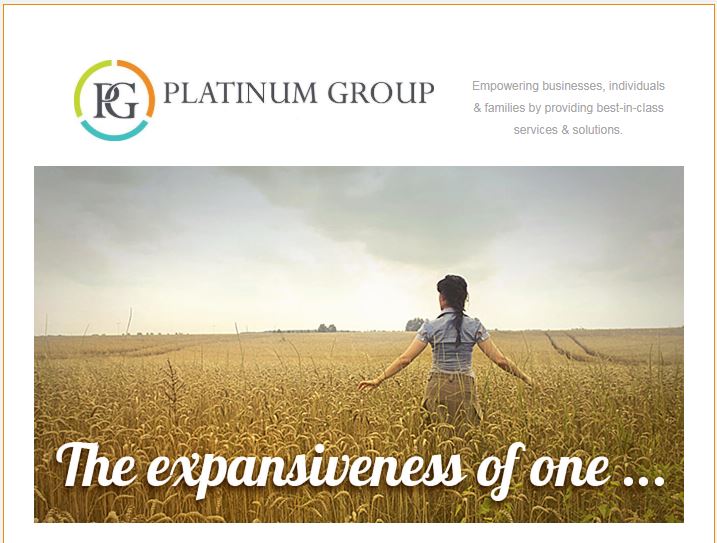When we think about diversity and inclusion in the workplace, it’s easy to focus primarily on factors like gender, race and ethnicity. But true inclusion means embracing the full spectrum of diversity, including neurodiversity. 15 to 20% of the population is considered neurodivergent, meaning they have neurological differences like autism, ADHD or dyslexia that cause them to think and function in ways that diverge from the “typical.”
While neurodivergent individuals often possess extraordinary skills and talents, they’ve been largely overlooked in the workforce. However, forward-thinking companies are starting to recognize the immense potential of this untapped talent pool. By making deliberate efforts to recruit, accommodate and empower neurodivergent employees, these organizations are not only practicing social good, but also gaining significant competitive advantages.
The business case for neurodiversity is compelling. Research shows that inclusive teams are more innovative, productive and engaged. A study by JPMorgan Chase found that professionals in its Autism at Work initiative were 48% faster and up to 92% more productive than neurotypical employees. EY has also reported significant benefits from its neurodiversity program, including increased innovation, improved work quality, and a boost to its reputation as an employer of choice.
Despite these proven advantages, neurodivergent individuals still face staggering unemployment rates—up to 80% by some estimates. This represents a huge loss of talent and human potential. By expanding our definition of diversity and rethinking traditional notions of what makes a good employee, we open the door for more people to contribute their best. Inclusion is not just a feel-good initiative; it’s an essential strategy for competing in today’s complex world.
Benefits of An Inclusive Workplace
Diverse perspectives drive innovation. Neurodivergent employees literally think differently and bring new ways of seeing and solving problems. At SAP, neurodiverse customer-service analysts identified opportunities for customer self-service options. At Hewlett Packard Enterprise, neurodivergent software testers helped a client completely redesign a flawed product launch process. Time and again, inclusion leads to valuable insights.
Neurodiversity initiatives also have a positive impact on overall employee engagement and retention. Neurodiverse hires, deeply loyal to companies that give them a chance, tend to have very low turnover. Their neurotypical colleagues also report higher morale and job satisfaction when working on diverse teams focused on individual strengths. An inclusive culture benefits everyone.
Finally, neurodiversity programs help address the severe talent shortages many industries face, especially in technical fields. While up to 80% of neurodivergent adults are unemployed or underemployed, many have advanced skills and degrees. Tapping into this talent pool provides access to highly qualified candidates and helps close critical skills gaps. With the demand for workers in areas like cybersecurity, data analytics and software engineering rapidly outpacing supply, organizations can’t afford to overlook skilled neurodivergent professionals.
Tools of support
To unlock the potential of neurodivergent employees, workplaces must provide the right accommodations and supports. Often, these are simpler and less costly than many realize. For example:
- Provide noise-cancelling headphones and adjust lighting for those with sensory sensitivities
- Allow flexible hours and remote work options
- Give clear, direct instructions, put things in writing, and avoid jargon
- Offer job coaches and mentors to help navigate social aspects of work
- Train all staff on neurodiversity to foster understanding and fight stigma
- Focus on individual strengths and find roles that leverage unique skills
With these kinds of supports in place, neurodivergent employees are empowered to thrive and make their fullest contributions. Managers should collaborate with each individual to understand their needs and play to their strengths. This person-centered approach is key to helping neurodivergent team members flourish.
Many companies have found success partnering with disability inclusion experts who can help them implement best practices.
It’s also important for companies to examine their existing HR processes and see where adjustments can be made to better accommodate neurodivergent candidates and employees. Are your job postings, applications and interviews accessible? Do your employee resource groups and benefits include support for neurodivergent needs? An audit of current practices can identify opportunities to build in more inclusive supports.
How A Learning Management System Can Help
A learning management system (LMS) can be a powerful tool in creating an inclusive culture. isolved’s Learn & Grow feature, offered by Platinum Group, provides access to an extensive library of e-learning courses on key workplace topics. This tool can be a valuable resource for supporting neurodiversity.
Learn & Grow offers courses on subjects like unconscious bias, inclusive leadership, effective communication and more. These can help educate staff and managers on how to work successfully with neurodivergent colleagues. Neurodivergent employees themselves may also appreciate the ability to learn and referesh skills through self-paced online courses that allow them to absorb information in their own way, without the social pressures of in-person training.
The system’s scheduling and performance management tools can also assist in providing necessary accommodations, such as allowing you to easily make adjustments to an employee’s schedule or tailor their goals and feedback processes. Surveys administered through the system can help you check in with neurodivergent employees and continually improve your inclusion efforts.
Creating a Neurodiverse Workplace
Building an inclusive workplace takes commitment, but it’s well worth the effort. Companies leading the way, like SAP, HPE and Microsoft, have seen impressive results in terms of new innovations, productivity gains, employee engagement and more.
The key is to rethink traditional notions of what makes a good employee. Move beyond a one-size-fits-all approach to hiring, managing and developing talent. Instead, focus on fitting jobs to people and people to jobs based on individual abilities.
This requires open-mindedness and some accommodations, but it doesn’t have to mean a complete overhaul of your HR practices. Start with education to build awareness. Then make sure your hiring processes aren’t screening out neurodivergent applicants, provide training and support, and look for ways to let people leverage their unique strengths. Celebrate the diversity of thought and talents of all your employees.
With a strategic, supportive approach, you can foster a workplace where neurodivergent employees don’t just fit in, but are truly set up to succeed—to the benefit of your people and your business. Organizations that embrace the full range of human neurodiversity will have a critical edge in innovating, problem-solving and attracting loyal talent in today’s complex world.
Get Started Today
As the paradigm of diversity and inclusion continues to evolve, it’s time for more organizations to recognize neurodiversity as a key dimension. The most dynamic, innovative workplaces of the future will be those where employees of all neurotypes can fully apply their talents.
If you’re looking to build a more inclusive culture and tap into neurodiverse talent, Platinum Group can help. Our isolved system provides tools to educate your workforce, make needed accommodations and maximize each employee’s strengths. Reach out today to learn more about how we can support you in empowering every member of your team.
























